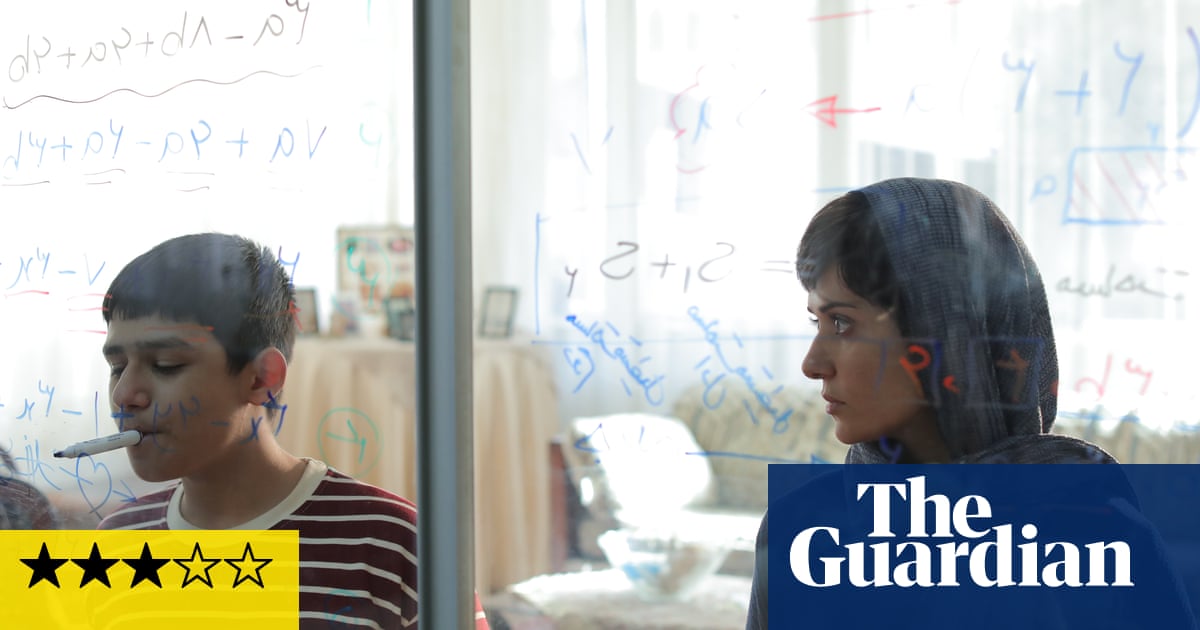Astrange, sad, sombre movie from Iranian director Saeed Roustaee whose last entry at Cannes wasthe family drama Leila’s Brothers in 2022. This is a story about the randomness of life in the big city, a melodramatic convulsion of grief, rage and pain which has a TV soap feel to its succession of escalating crises. Like Leila’s Brothers, it is about the entitlement of Iran’s menfolk, and how a man – however shiftless, casual and low-status – can somehow pull rank on a woman in the marriage market.
Payman Maadi (from Asghar Farhadi’s A Separation) plays Hamid, an ambulance driver in his late 40s with a certain roguish ladies-man charm whose unmarried status raises eyebrows among some of his acquaintances, but who is now engaged to Mahnaz (Parinaz Izadyar). She is a smart, hardworking hospital nurse who is widowed and lives with her sister Mehri (Soha Niasti) and mum (Fereshteh Sadre Orafaee), and her two kids. Teen son Aliyar (Sinan Mohebi) is always in trouble at school and has a breezy way of sweet-talking his mother into forgiving him and younger sister Neda (Arshida Dorostkar).
Hamid is not exactly a catch, but behaves implicitly as if Mahnaz’s two children mean that he is the one being a saint. He insists that the children are absent from the house when his parents come round, and that all their things are hidden away as Mahnaz’s future parents-in-law don’t know about them and might stop the marriage. Mahnaz, against her better judgment, parks the children with the grumpy father of her late husband. The meeting with Hamid’s parents goes ahead and terrible events are set in train including one which is, perhaps bafflingly, never shown on camera and its perpetrator never shown explaining it or discussing it – though an enigma is possibly the point.
Maadi’s performance coolly conveys how slippery an individual Hamid is: accustomed to being adored for his supposedly endearing way with a gallant remark, but shrill and self-pitying when challenged on anything. He is running a shabby, corrupt little scam: allowing people to sleep in the ambulances when they are not being used, for an exploitative cash payment. And there are signs that Hamid has a roving eye and he is still (instinctively) hitting on other women.
From this tense situation (in which the game is patriarchally rigged against Mahnaz in ways that she couldn’t dream of) a catastrophe occurs – in fact a double catastrophe – which sends Mahnaz into a rage-filled confrontation with every single man in her life, including the choleric schoolteacher Mr Samkhanian (Maziar Seyyedi) who expelled Aliyar against his colleague’s advice. The tragic and startling events emerge in a movie whose storytelling style is otherwise very low-key, and which gives an almost bizarre and unexpected quality to all the heartbreaking emotional pain; this is the unexpectedness of real life, perhaps.
Izadyar’s full-throttle performance shows how anguish has made her a kind of ghost, haunting a world that she had hoped to occupy as a modestly contended human being. It is a little overwrought, though carried by the forthright performances.
Woman and Child screened at theCannes film festival.
